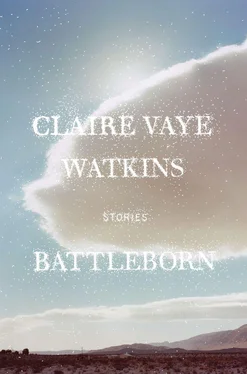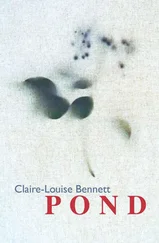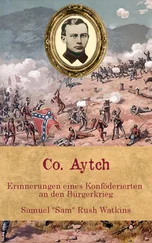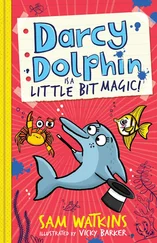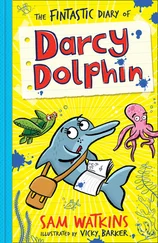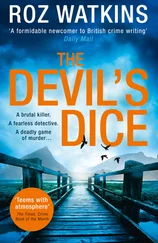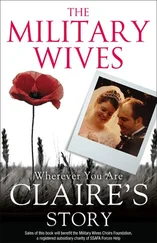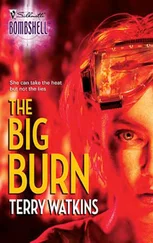I am beginning to think I dreamed you up. Please, write soon.
Truly,
Thomas Grey
P.O. Box 1230
Verdi, Nevada 89439
—
October 16
Duane Moser
4077 Pincay Drive
Henderson, Nevada 89015
Dear Mr. Moser,
I have read the letters from M, the ones you kept folded in the Ziploc bag. Forgive me, but for all I know you may be dead, and I could not resist. I read them in my shed, where the stink and thickness of the air were almost unbearable, and then again in my truck in the parking lot of the Verdi post office. I was struck, as I was when I first found them out near Rhyolite on Cane Springs Road, by how new the letters looked. Though most were written nearly twenty years ago, the paper is clean, the creases sharp. Duane Moser, what I do not understand is this: why a Ziploc bag? Did you worry they might get wet on your journey through the desert in the middle of summer? Then again, I am reminded of the Coke and Bud Light. Or am I to take the Ziploc bag as an indication of your fierce, protective love for M? Is it a sign, as M suggests, that little by little you sealed your whole self off, until there was nothing left for her? Furthermore, I have to ask whether you committed this sealing purposefully. She says she thinks she was always asking too much of you. She is generous that way, isn’t she? She says you didn’t mean to become “so very alien” to her. I am not so sure. I love my wife. But I’ve never told her how I once knew a man in Beatty with a ’66 Chevelle. I know what men like us are capable of.
Duane Moser, what I come back to is this: how could you have left M’s letters by the side of Cane Springs Road near the ghost town Rhyolite where hardly anyone goes anymore? (In fact, I have never seen another man out on Cane Springs Road. I drive out there to be alone. Maybe you do, too. Or you did, anyway.) Did you not realize that someone just like you might find them?
I have called the phone number listed on the prescription bottles, finally, though all I heard was the steady rising tones of the disconnected signal. Still, I found myself listening for you there. Please, write soon.
Truly,
Thomas Grey
P.O. Box 1230
Verdi, Nevada 89439
P.S. On second thought, perhaps sometimes these things are best left by the side of the road, as it were. Sometimes a person wants a part of you that’s no good. Sometimes love is a wound that opens and closes, opens and closes, all our lives.
—
November 2
Duane Moser
4077 Pincay Drive
Henderson, Nevada 89015
Dear Mr. Moser,
My wife found your pictures, the ones of the Chevelle. The one you maybe got from a junkyard or from a friend, or maybe it’s been in your family for years, rotting in a garage somewhere because after what happened nobody wanted to look at it. I kept the pictures tucked behind the visor in my truck, bound with a rubber band. I don’t know why I kept them. I don’t know why I’ve kept your letters from M, or your medications. I don’t know what I would do if I found what I am looking for.
When I was in high school I worked the graveyard shift at a gas station in Beatty. It’s still there, on the corner of I-95 and Highway 374, near the hot springs. Maybe you’ve been there. It’s a Shell station now, but back then it was called Hadley’s Fuel. I worked there forty, fifty hours a week. Bill Hadley was a friend of my father’s. He was a crazy son of a bitch, as my father would say, who kept a shotgun under the counter and always accused me of stealing from the till or sleeping on the job when I did neither. I liked the graveyard shift, liked being up at night, away from Pop, listening to the tremors of the big walk-in coolers, the hum of the fluorescent lights outside.
Late that spring, a swarm of grasshoppers moved through Beatty on their way out to the alfalfa fields down south. They were thick and fierce, roaring like a thunderstorm in your head. The hoppers ate anything green. In two days they stripped the leaves from all the cottonwoods and willows in town, then they moved on to the juniper and pine, the cheatgrass and bitter salt cedar. A swarm of them ate the wool right off of Abel Prince’s live sheep. Things got so bad that the trains out to the mines shut down for a week because the guts of the bugs made the rails too slippery.
The grasshoppers were drawn to the fluorescent lights at Hadley’s. For weeks the parking lot pulsed with them. I would have felt them crunch under my feet when I walked out to the pumps that night, dead and dying under my shoes, only I never made it out to the pumps. I was doing schoolwork at the counter. Calculus, for God’s sake. I looked up and the guy was already coming through the door at me. I looked outside and saw the ’66 Chevelle, gleaming under the lights, grasshoppers falling all around it like rain.
I tried to stop him but he muscled back behind the counter. He had a gun, held it like it was his own hand. He said, You see this?
There was a bandanna over his face. But Beatty is a small town, and it was even smaller then. I knew who he was. I knew his mother worked as a waitress at the Stagecoach and that his sister had graduated the year before me. The money, he was saying. His name was Frankie. The fucking money, Frankie said.
I’d barely touched a gun before that night. I don’t know how I did it. I only felt my breath go out of me and reached under the counter to where the shotgun was and tried. I shot him in the head.
Afterward, I called the cops. I did the right thing, they told me, the cops and Bill Hadley in his pajamas, even my father. They said it over and over again. I sat on the curb outside the store, listening to them inside, their boots squeaking on the tile. The deputy sheriff, Dale Sullivan, who was also the assistant coach of the basketball team, came and sat beside me. I had my hands over my head to keep the grasshoppers away. Kid, it was bound to happen, Dale said. The boy was a troublemaker. A waste of skin.
He told me I could go on home. I didn’t ask what would happen to the car.
That night, I drove out on Cane Springs Road to Rhyolite. I drove around that old ghost town with the windows rolled down, listening to the gravel pop under my tires. The sun was coming up. There, in the milky light of dawn, I hated Beatty more than I ever had. The Stagecoach, the hot springs, all the trees looking so naked against the sky. I never wanted to see any of it ever again.
I was already on my way to college and everyone knew it. I didn’t belong in Beatty. The boy’s family, his mother and sister and stepfather, moved away soon after it happened. I’d never see them around town, or at Hadley’s. For those last few weeks of school no one talked about it, at least not to me. Soon it was as though it had never happened. But — and I think I realized this then, up in Rhyolite, that dead town picked clean — Beatty would never be a place I could come home to.
When my wife asked about your pictures, she said she didn’t realize I knew so much about cars. I said, Yeah, sure. Well, some. See the vents there? On the hood? See the blackout grille? That’s how you know it’s a ’66. I told her I’d been thinking about buying an old car, fixing it up, maybe this one. Right then she just started laughing her head off. Sure, she managed through all her laughter, fix up a car. She kept on laughing. She tossed the bundle of photos on the seat of the truck and said, You’re shitting me, Tommy.
It’s not her fault. That man, the one who knows a ’66 when he sees one, that’s not the man she married. That’s how it has to be. You understand, don’t you?
I smiled at her. No, ma’am, I said. I wouldn’t shit you. You’re my favorite turd.
She laughed — she’s generous that way — and said, A car. That’s the last thing we need around here.
Читать дальше
